Yorkies are known for being pampered lap dogs with long, silky fur. They can also be goofy, sassy, and smart! Some common Yorkshire Terrier complaints may surprise you, given their popularity. They’re one of the top 15 dog breeds in the United States!
Yorkshire Terrier owners complain that they’re very vocal and sometimes territorial. Their fur is very high-maintenance, requiring daily brushing, frequent baths, and regular trips to the groomer. They can also be pretty expensive.
In this article, we’ll discuss 21 common Yorkie complaints to help you decide if these dogs are right for you.
Are Yorkshire Terriers Annoying?
Yorkies are often seen as annoying, yappy dogs. However, there’s more to them than meets the eye! Yorkshire Terriers can be excellent pets, especially with proper training and socialization.
They’re playful and relatively high energy for a small dog, but it doesn’t take more than a short walk to meet their daily exercise needs. Yorkies are loyal, affectionate, and protective of their favorite people. They make terrific watchdogs, though they’re not large enough to guard effectively.
They typically choose a favorite person and become their shadow. Your Yorkie may become jealous of other people or pets, and should be trained not to get too territorial!
By no means are Yorkshire Terriers bad dogs! They just aren’t for everybody. If you have young children or other dogs, spend a lot of time away from home, or don’t want a clingy pup, you might want to choose a different breed.
We’ll discuss the most common Yorkshire Terrier complaints below, from expenses to grooming needs.
21 Common Yorkshire Terrier Complaints
#1: You’ll Need to Brush Your Yorkie Daily
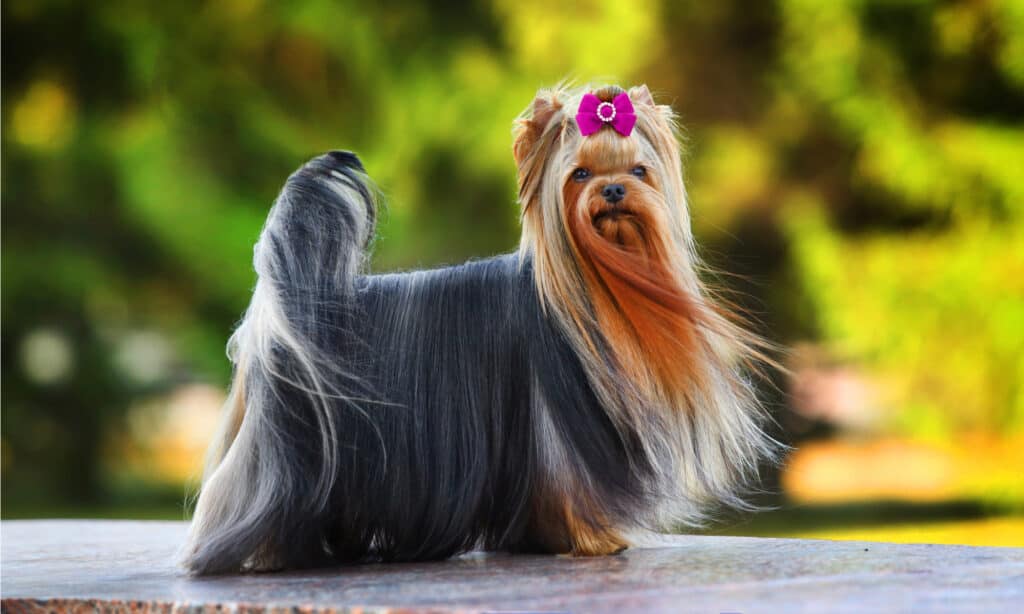
The longer your Yorkie’s fur, the more often they’ll need to be brushed.
©Dulova Olga/Shutterstock.com
Yorkshire Terriers have long, human-like hair that grows continuously. If kept long, it needs to be combed daily, all over the body and down to the skin.
Unbrushed Yorkies will develop painful mats in their fur that tug at their skin when they move. Matted fur can also cause skin issues, and makes it harder to detect pests like fleas in the coat.
#2: They Need Frequent Baths
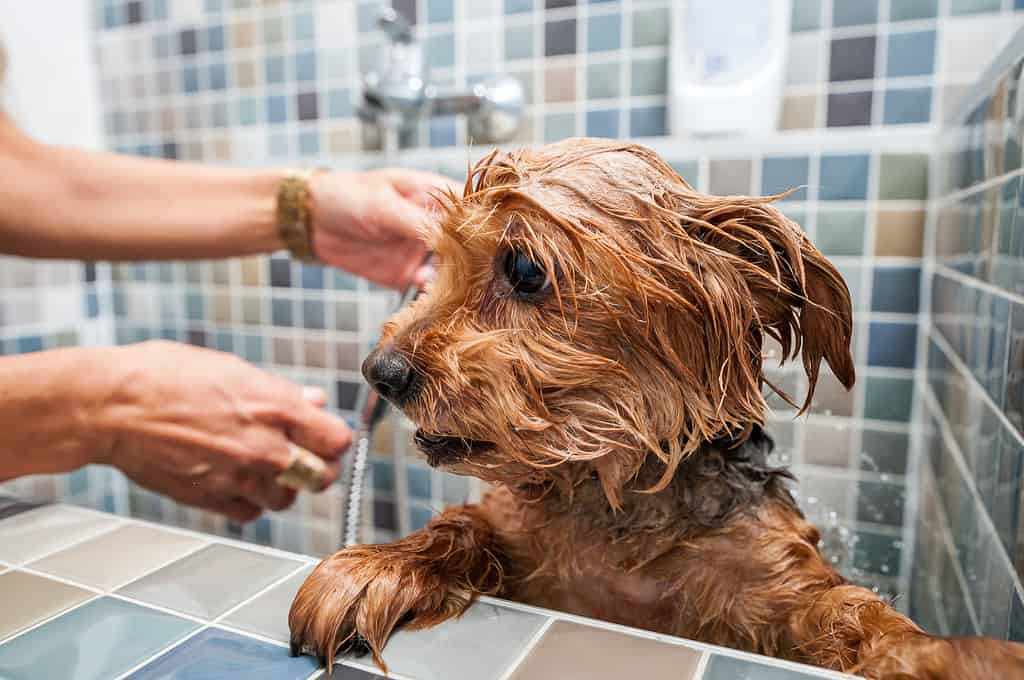
Yorkies need more frequent baths than some other dog breeds.
©Srdjanns74/iStock via Getty Images
In addition to frequent brushing, Yorkies should be bathed often. Some will need baths every week to keep them clean and healthy.
Baths will also keep their fur silky and reduce some tangles in the coat.
#3: Yorkies and Other “Hypoallergenic” Breeds May Still Trigger Allergies

People with dog allergies can still be allergic to Yorkies.
©iStock.com/frantic00
While Yorkshire Terriers are considered hypoallergenic dogs that don’t shed, this isn’t entirely true. Most people aren’t allergic to dog fur, but the proteins that all dogs carry regardless of breed.
Yorkies also aren’t entirely non-shedding but will shed similarly to humans. You’ll still find stray strands of fur around the house once in a while, just much less than you would expect from a shedding breed.
If you’re allergic to dogs, please spend time with some Yorkies before adopting your own. Be sure to touch your face after petting them to ensure you can handle any symptoms that arise.
#4: They’re Expensive Dogs
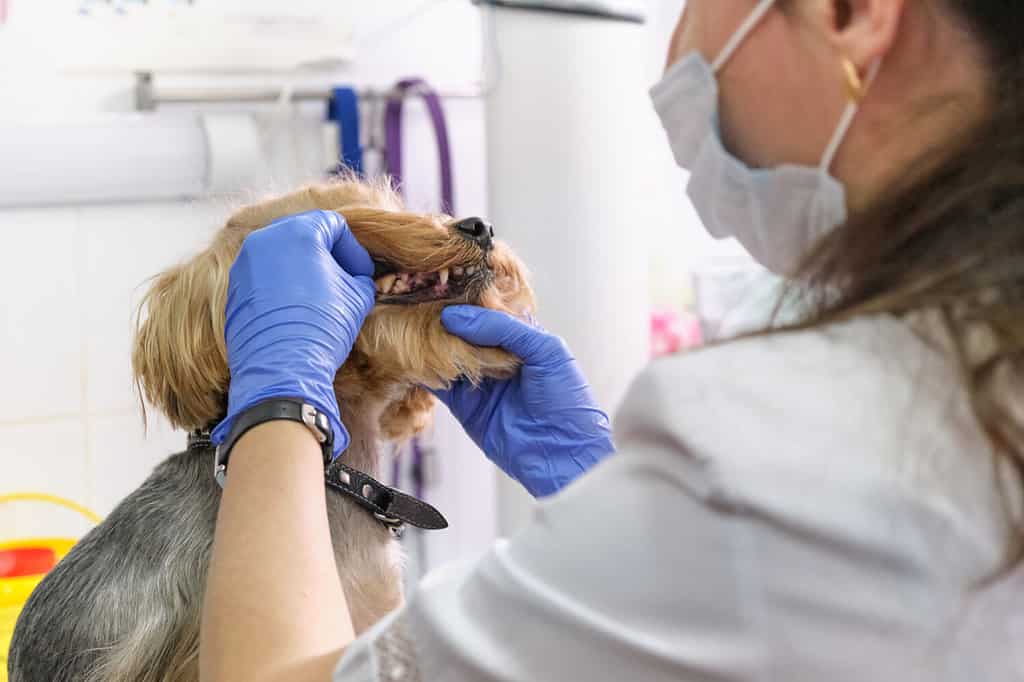
Yorkshire Terriers can be expensive dogs due to grooming and veterinary bills.
©Yavdat/Shutterstock.com
Yorkshire Terriers aren’t the cheapest dogs, though they also aren’t the most expensive. Some costs to consider include:
- Regular trips to the groomer. Your Yorkie should see the groomer for a haircut every four to six weeks. These costs add up quickly, and it’s important to budget for them before adopting.
- Vet visits. Routine vet costs are expensive, and your Yorkie should see the vet at least once a year for a check-up. You should also have a plan in case your dog gets sick or needs to be brought to an emergency vet clinic, as this can cost hundreds or thousands of dollars.
- Pet insurance. While it’s not exclusive to Yorkies, pet insurance is a good idea for any dog. It’ll help you take care of those sick or emergency visits that we discussed above.
- Everyday expenses, such as food. Yorkies don’t need to eat as much as big dogs and their items are small, which helps cut down on costs. However, you’ll still need to plan for their everyday expenses.
#5: Ungroomed Yorkies Can be Ugly
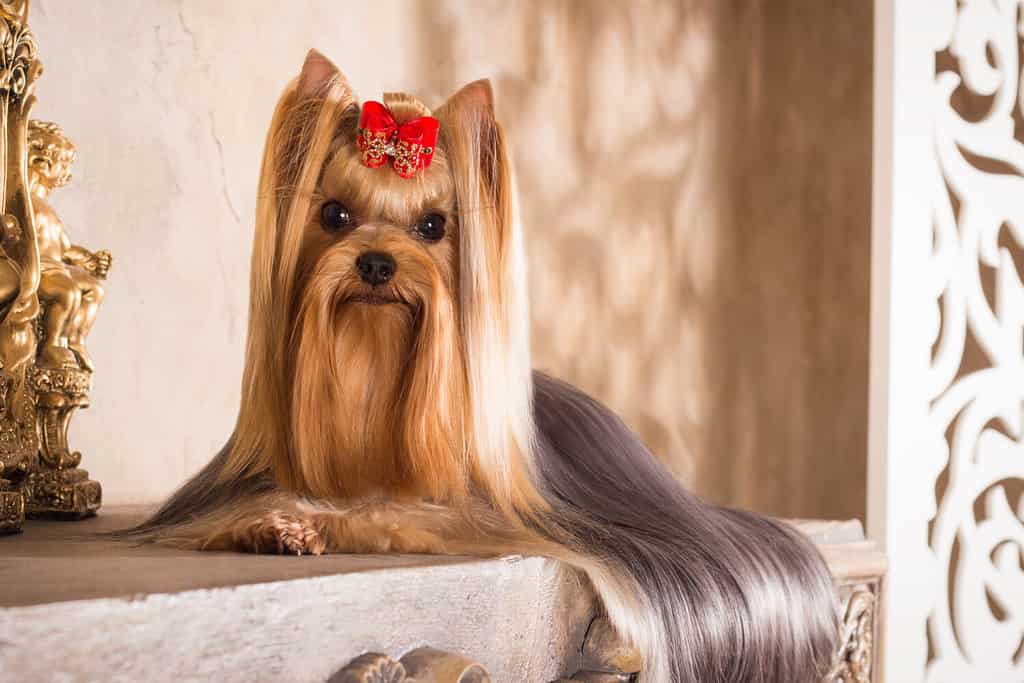
It takes effort to maintain a Yorkie’s good looks, especially if you keep their coats long!
©Kseniya Zhuk/Shutterstock.com
Many people find Yorkshire Terriers ugly. Sometimes it’s just a personal preference, but sometimes it’s because they’ve seen ungroomed Yorkies and consider it the norm.
If you keep the hair on your Yorkie’s face long, you’ll need to wipe it daily to keep the area around their mouth clean. Tearstains are also common in these pups, and you should wipe their eyes frequently.
#6: They’re Small
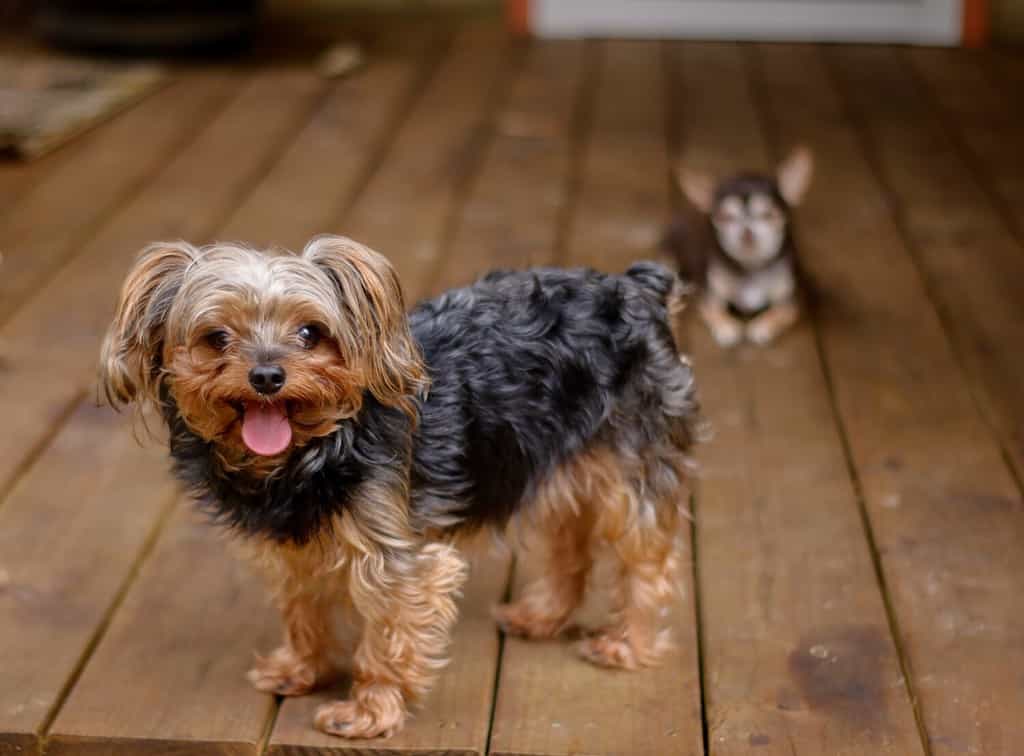
Yorkies are tiny dogs that can be injured easily.
©My Bokeh Life/Shutterstock.com
For most people looking to adopt a Yorkie, their size is a good thing. Small dogs are less expensive to feed, easier to handle, and typically need less exercise than larger breeds.
However, there are downsides to small dogs as well. They’re more fragile, can’t keep up with vigorous exercise, and are prone to health problems such as dental disease.
#7: Yorkies can be Hurt Easily
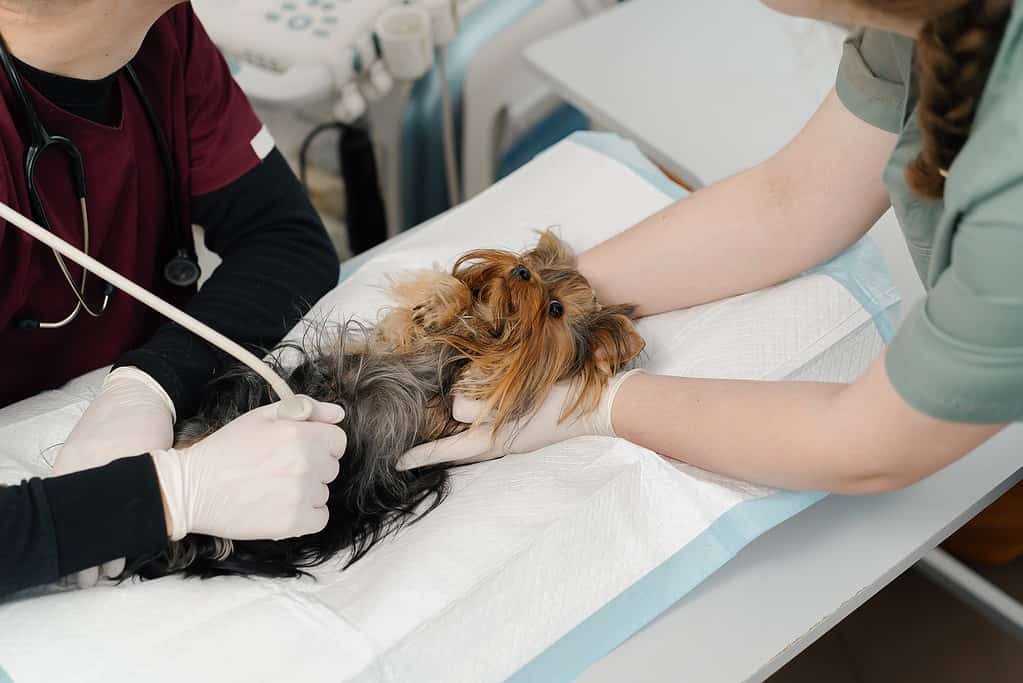
Yorkies can be injured easily, which can sometimes require veterinary care.
©guys_who_shoot/Shutterstock.com
Yorkshire Terriers are fragile dogs due to their size. It’s easy to hurt them on accident by stepping on them, sitting on them (especially if they hide under a blanket on the couch), or handling them too roughly. They can even get squished beneath furniture if they crawl under it.
This is especially true of children, who shouldn’t be allowed to pick up your Yorkie on their own or roughhouse with them. Often, kids and Yorkies aren’t a good mix since the dogs can be hurt so easily–and might bite in self-defense as well.
If you do have kids, never leave them unsupervised with your dog.
#8: They’re “Tomboys”
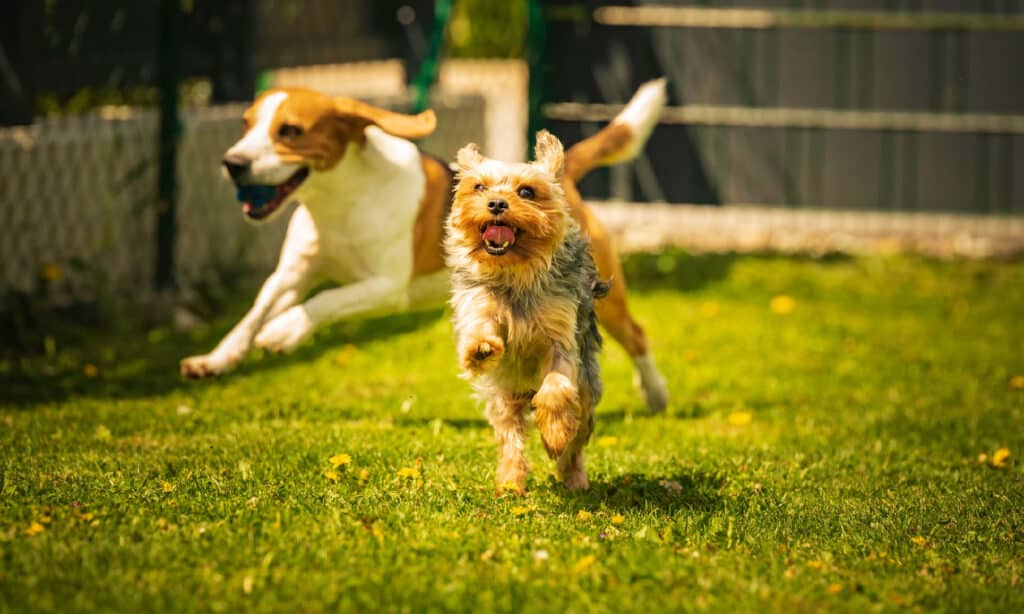
Yorkies aren’t content to sit around all day looking pretty. They also want to run and play!
©iStock.com/Przemysław Iciak
The American Kennel Club describes Yorkies as “tomboyish.” While many see them as prissy lap dogs, they also love to play, explore, and even get dirty from time to time.
This might not be what you expect from your pup when adopting them, so it’s good to be prepared.
#9: Yorkshire Terriers are Stubborn
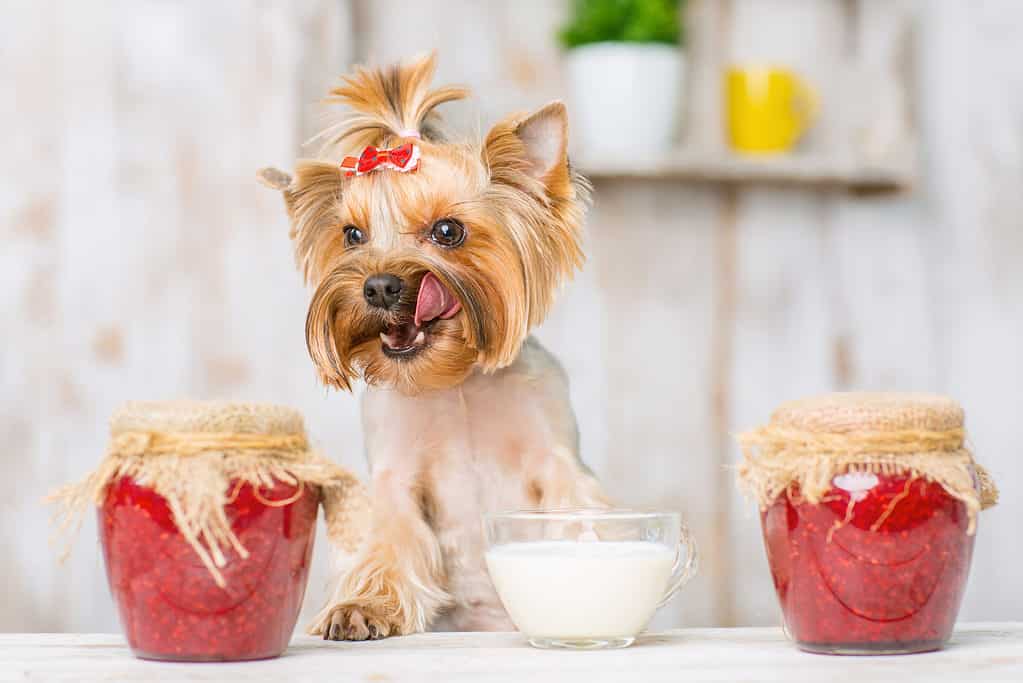
Yorkies can be stubborn and may keep trying until they get what they want from you!
©iStock.com/yacobchuk
For the most part, Yorkies are easy to train–especially if you know what you’re doing and use positive reinforcement.
They can be stubborn, though, especially when not given enough motivation to do what you want. Make training fun by turning it into a game, complete with lots of yummy treats!
#10: They Take Time to Potty Train
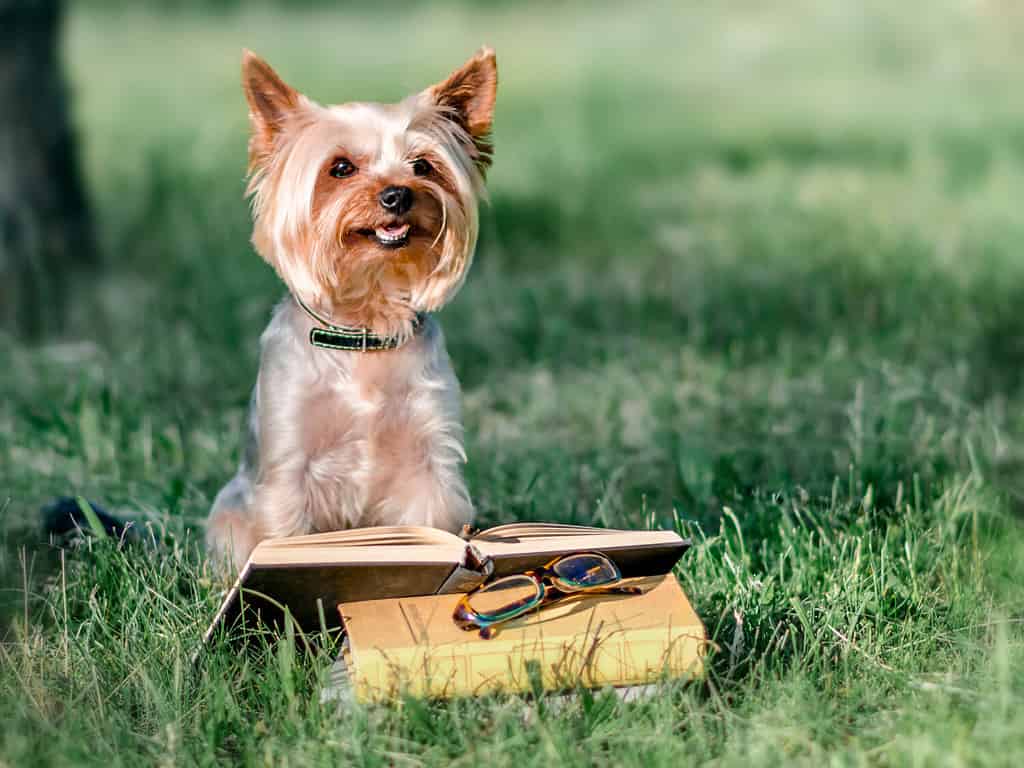
Though Yorkies are smart, potty training can take time for them to master.
©Tanya Kalian/Shutterstock.com
People commonly struggle when potty training Yorkies. They’re unlikely to grasp the concept as quickly as most larger breeds.
Small dogs also have smaller bladders, and it’s important to accommodate this when potty training. Asking your dog to hold it for longer than they’re able will inevitably lead to accidents inside the house.
Yorkies are smart dogs who will eventually understand where you want them to potty, but it takes time and patience.
#11: Some Yorkshire Terriers Have Strong Prey Drives
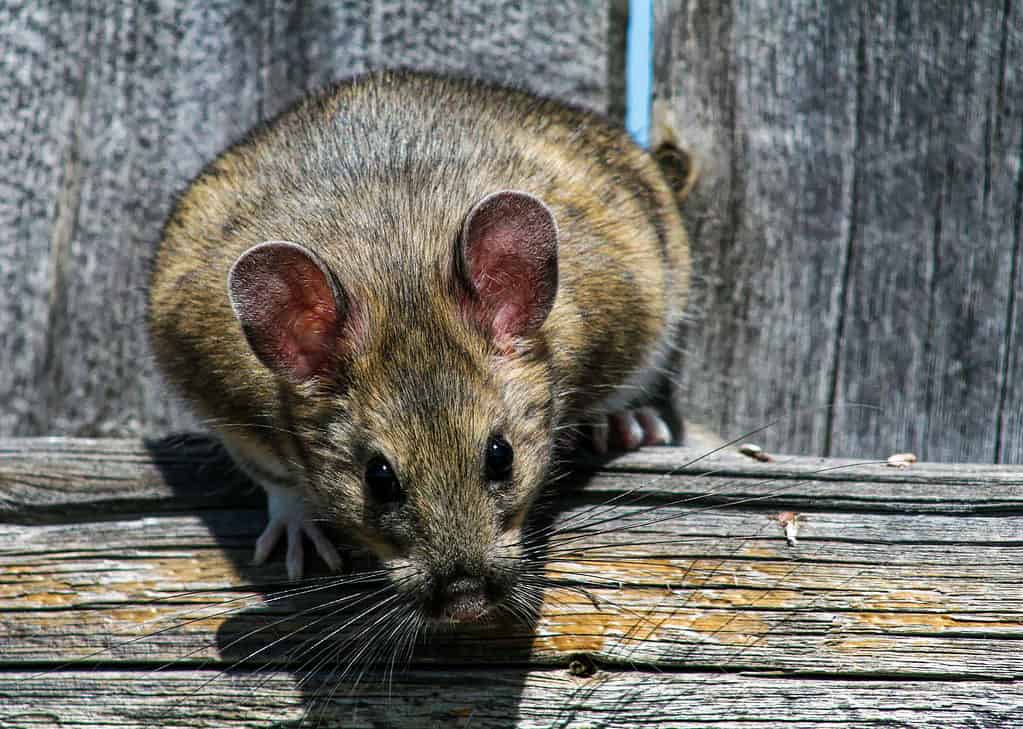
Yorkies were originally bred to hunt mice and rats.
©M. Leonard Photography/Shutterstock.com
Yorkies were bred to hunt rodents. Even though most of them aren’t adopted for this purpose today, they still retain their instincts!
Your Yorkshire Terrier may want to chase smaller animals, like squirrels, and may struggle with recall if allowed off leash.
#12: They Can be Yappy
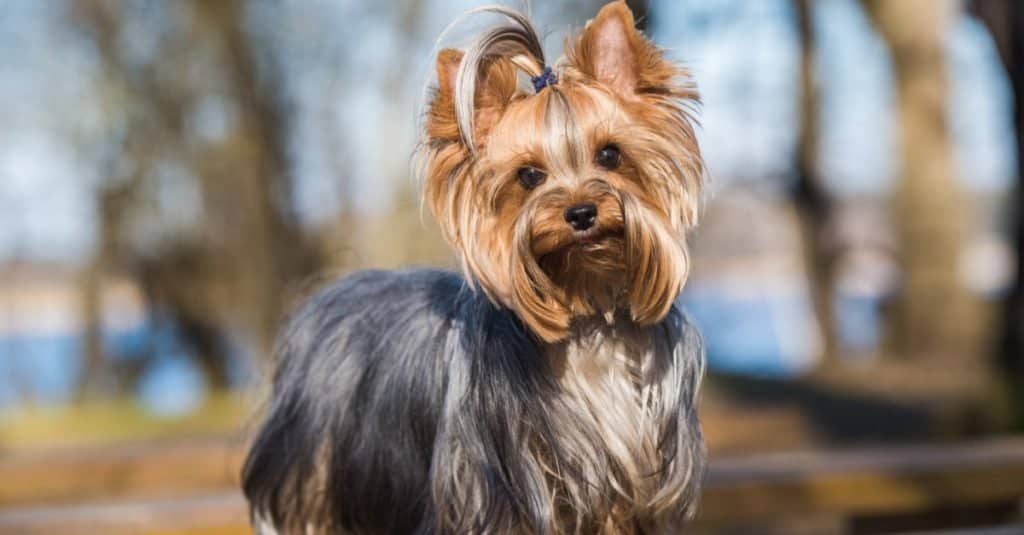
Some Yorkies bark too much!
©Zanna Pesnina/Shutterstock.com
A top complaint when it comes to small dogs like Yorkies is that they’re yappy. Yorkies can definitely be loud!
They have protective instincts and their bravery can cause them to stand up to animals or humans much larger than themselves. Because of this, Yorkies make great watchdogs but will have to be taught not to bark at everything in sight.
#13: Yorkies Can be Clingy

Yorkies love to snuggle.
©iStock.com/rfranca
Your Yorkshire Terrier is likely to become your little shadow, following you around as you go about your daily routine. They’ll also love cuddles on the couch.
They are lap dogs, after all, and most people don’t mind their clinginess. If you don’t want a dog constantly at your side, though, this likely isn’t the breed for you.
#14: They’re Prone to Separation Anxiety
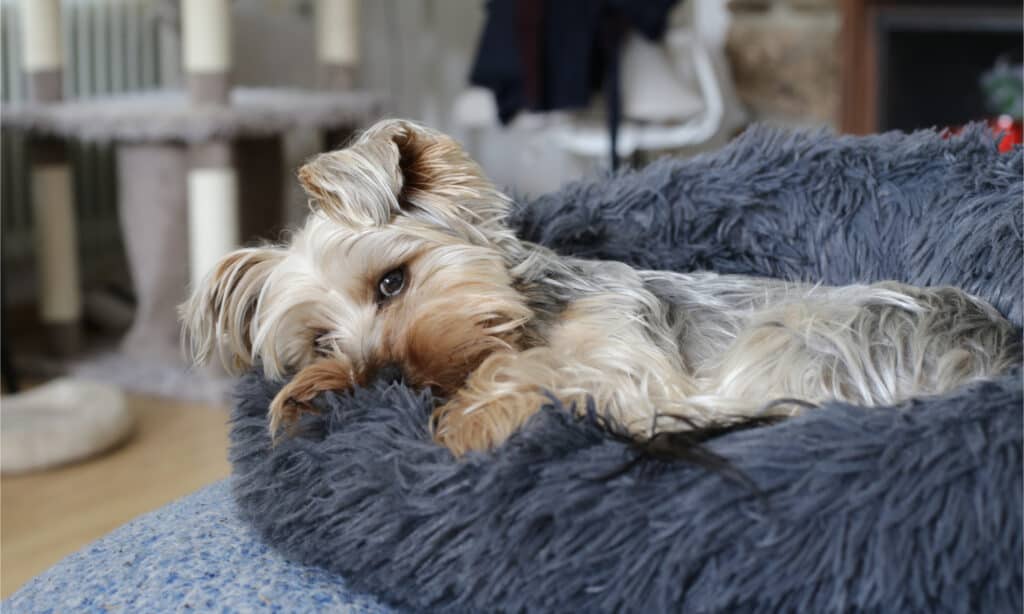
Many Yorkshire Terriers get anxious when left alone.
©AJR_photo/Shutterstock.com
Because they’re so clingy, Yorkies are also prone to separation anxiety. It’s important to teach them that it’s okay to be alone for short periods, and that you’ll always return home.
Equally important is not leaving them alone for long stretches of time. Yorkies do best in households where someone is home most of the day.
#15: When Well Socialized, They Love Strangers
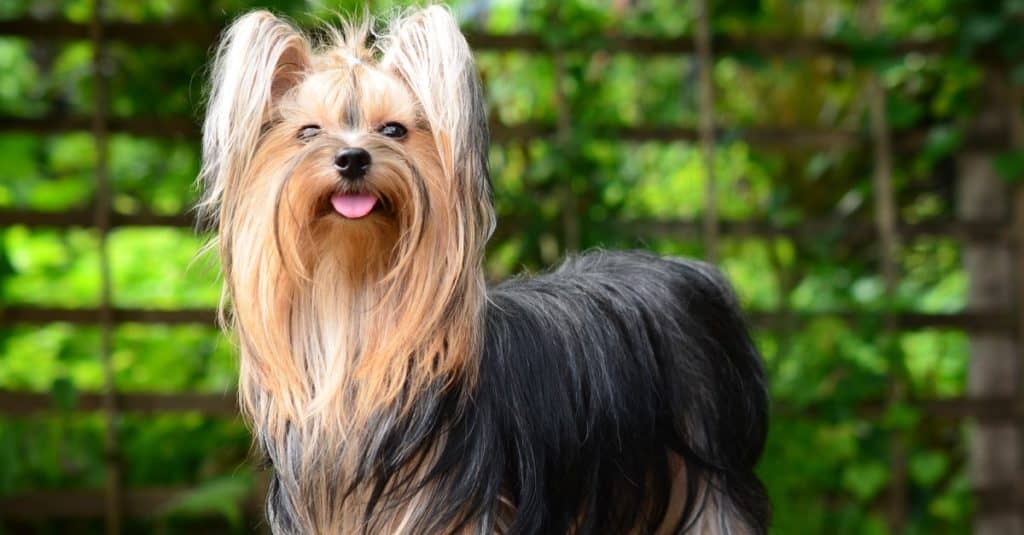
Yorkshire Terriers tend to be incredibly friendly.
©Mr. SUTTIPON YAKHAM/Shutterstock.com
A well-trained Yorkie might love people too much! You might need to teach them that not everyone wants to pet them on walks, or not to bark playfully at everyone they see.
#16: Yorkies Can Act Spoiled

Often, Yorkies want to be your sole focus. This can lead to jealousy.
©Anna Vasiljeva/Shutterstock.com
On the other hand, poorly socialized Yorkies may be shy or even a bit mean toward strangers–especially if they think they’re vying for your attention.
Yorkies can act spoiled if they aren’t trained, and often get jealous of other people or animals trying to spend time with their favorite humans.
They might also act out if they don’t get enough exercise or mental stimulation. Please remember that your Yorkie needs training and mental stimulation just like any large breed.
#17: They May Not Like Other Dogs

Not all Yorkshire Terriers like other dogs.
©OlgaOvcharenko/Shutterstock.com
Many Yorkies won’t like other dogs stealing their spotlight. They want to be your only focus, so multi-dog households can be difficult for these pups.
They might also dislike other dogs on walks. Yorkies sometimes have that “big dog” attitude that makes them prone to trying to start fights they can’t finish!
That said, it’s possible for Yorkies to get along well with other dogs. They’re more likely to enjoy it if they’ve been raised with other pups from a young age.
If you’re introducing your new Yorkshire Terrier to a household dog, it’s best to do so on neutral territory rather than at home. Keep both dogs on leash until they can be trusted off leash around one another, and take things at the dogs’ pace.
Supervise them carefully, especially with larger dogs, to ensure no one gets hurt.
#18: They Can Only Handle Moderate Exercise
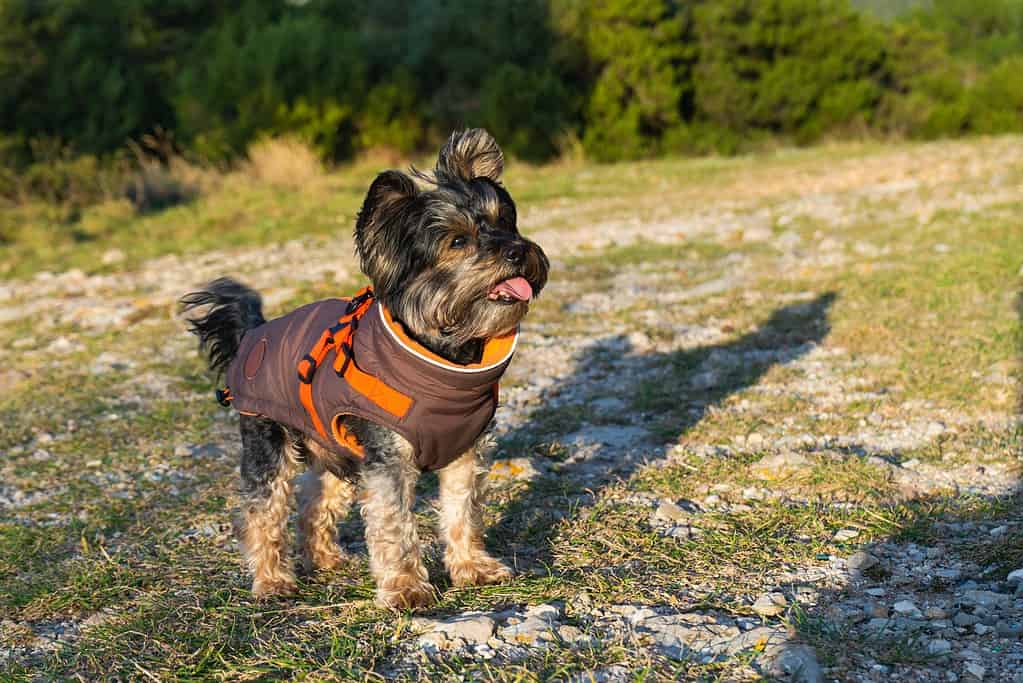
It doesn’t take a lot to tire out a Yorkie.
©Aleksandr Marushchak/Shutterstock.com
If you’re looking for a hiking or running buddy, a Yorkie likely can’t keep up. While they are energetic, they do best with moderate levels of exercise, such as walking around a few blocks each day or chasing a ball in the yard for a few minutes.
#19: Yorkies are Prone to Dental Problems
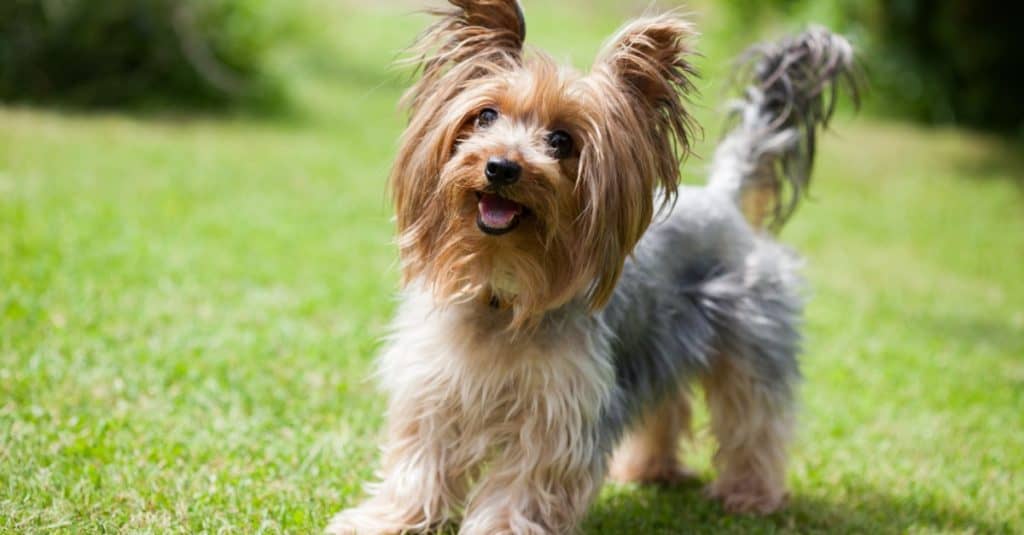
Many Yorkshire Terriers develop dental problems, especially in their senior years.
©Birute Vijeikiene/Shutterstock.com
Ideally, you should brush your Yorkie’s teeth daily or every other day. This is true of all dogs, but small breeds are more prone to dental problems.
Many complaints about Yorkies being expensive stem from their dental health issues. Most will need routine cleanings at the vet, even with their teeth being brushed at home–think about it like human dental cleanings.
They might also need dental work done, especially as they enter their senior years, which can be very expensive. Most pet insurance plans don’t cover the cost of routine dental cleanings.
#20: Many Yorkies are Poorly Bred and Have Health Problems

If you aren’t rescuing your Yorkie, it’s vital to research your breeder.
©Pelevina Ksinia/Shutterstock.com
With a breed this popular, there are bound to be plenty of backyard breeders and puppy mills breeding Yorkies. These dogs typically suffer from more health problems than reputably bred dogs because the breeders do not screen for issues, nor do they care if they breed unhealthy puppies.
One issue with Yorkshire Terriers is snout length. This breed is classified as mildly brachycephalic, which means their short snouts can cause some breathing and health struggles.
Other health problems to look for in a Yorkshire Terrier are eye conditions, liver problems, and luxating patella.
To find a reputable breeder, look for someone who purposefully breeds for longer snouts. They should have up-to-date OFA health tests for both parent dogs, and a contract that prevents their puppies from ending up in shelters should they need to be rehomed.
#21: They Live a Long Time
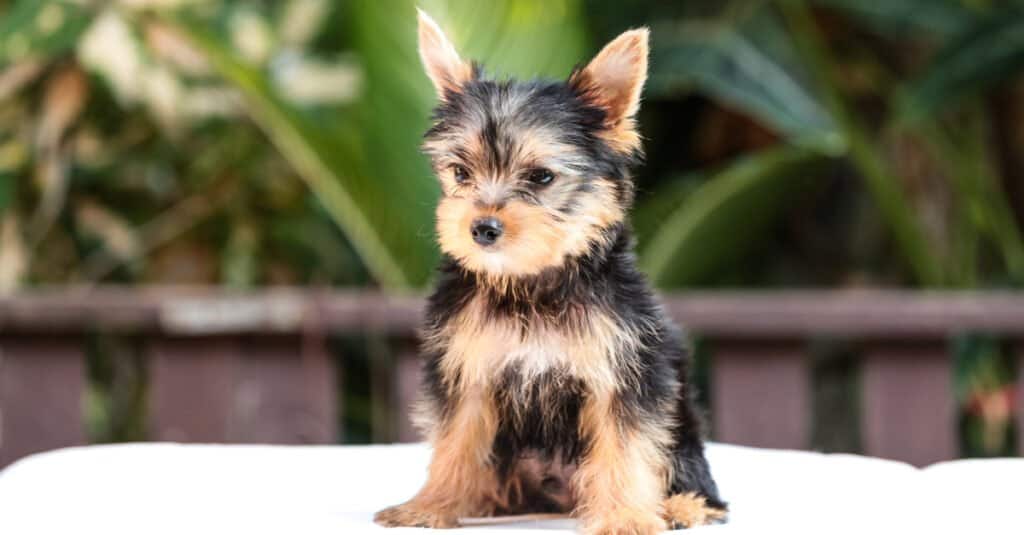
Adopting a Yorkshire Terrier means committing for life, not just the puppy years.
©DOPTOON/Shutterstock.com
Yorkshire Terriers live an average of 11-15 years, but some live well into their twenties. The oldest Yorkie ever was a 28 year old named Bonny!
While most of us want our dogs to live forever, it is a huge commitment to care for a Yorkie for so long. It’s important to consider where you’ll be at in life when your dog is in their senior years. Will you still be able to care for them when you go to college, get a new job, or have children?
That said, the bond you have with a senior pup is like no other, especially when you’ve spent over a decade together.
Thank you for reading! If you have feedback on this post, please contact the AZ Animals editorial team.
The photo featured at the top of this post is © Kseniya Zhuk/Shutterstock.com
Ready to discover the top 10 cutest dog breeds in the entire world?
How about the fastest dogs, the largest dogs and those that are -- quite frankly -- just the kindest dogs on the planet? Each day, AZ Animals sends out lists just like this to our thousands of email subscribers. And the best part? It's FREE. Join today by entering your email below.
Thank you for reading! Have some feedback for us? Contact the AZ Animals editorial team.







